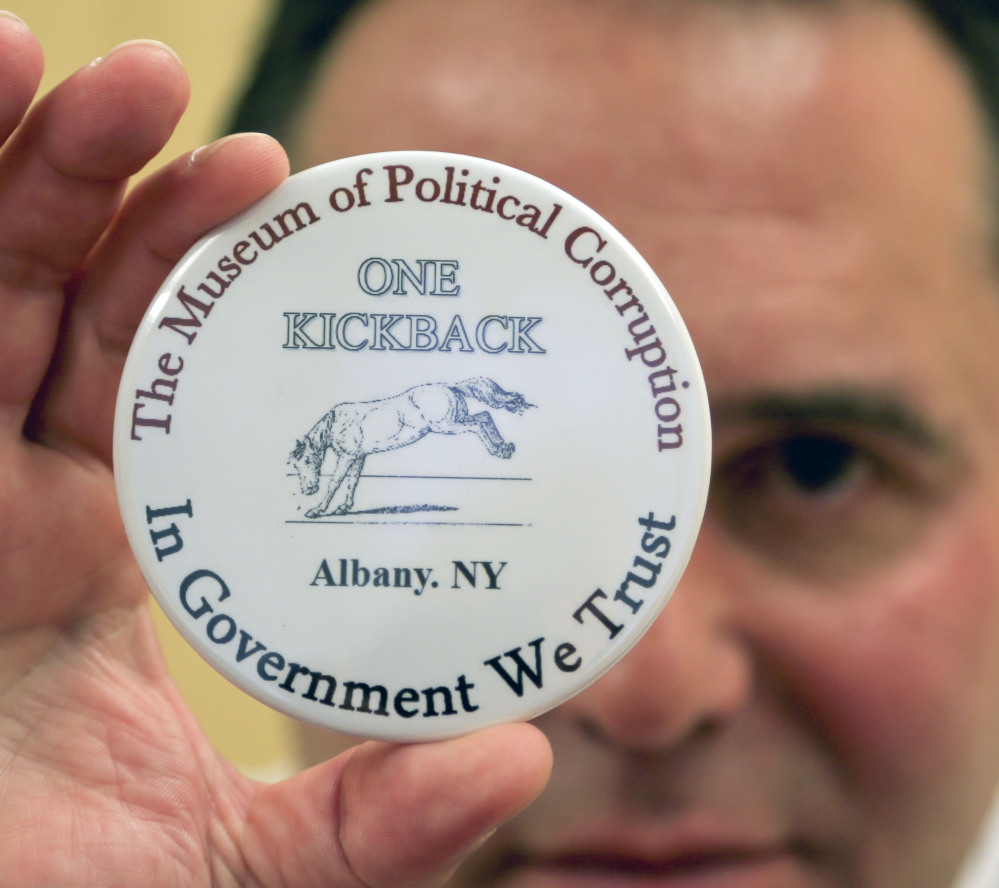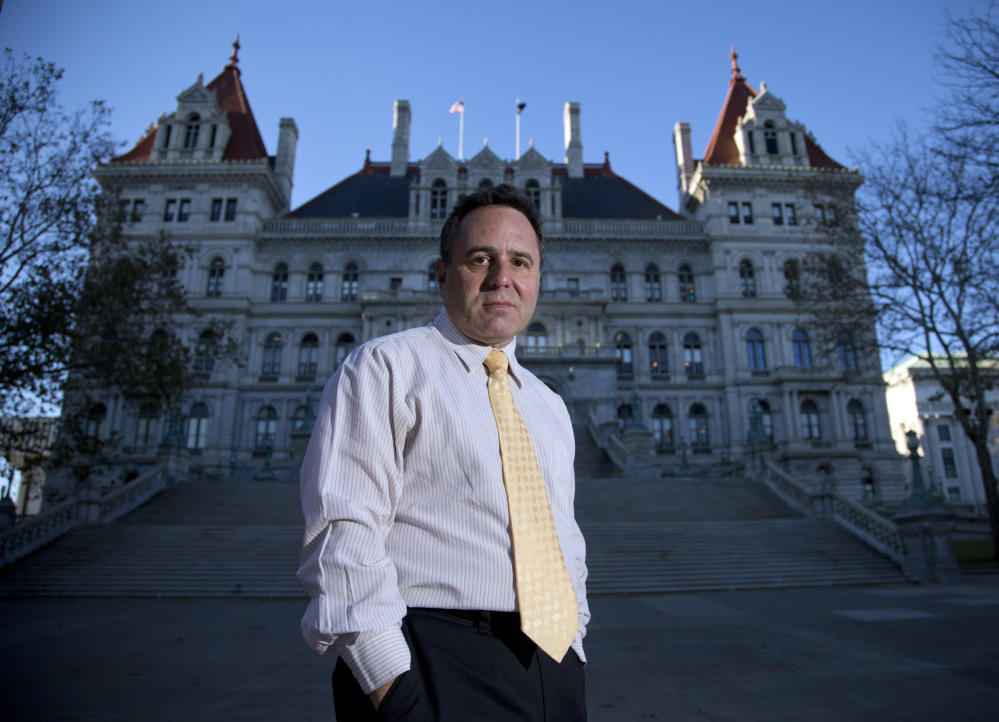ALBANY, N.Y. — A resident of New York’s capital city has an unusual economic development plan to harness what he says is one of Albany’s most abundant renewable resources: political corruption.
For a $12.50 or so “bribe,” visitors to the planned Museum of Political Corruption will get a tour of the state’s long history of crooked politicians, shady deals and backroom power brokers, as well as a chance to learn about individuals who have fought corruption and suggested solutions to the state’s chronic problem.
The museum is the idea of Bruce Roter, a professor at Albany’s College of Saint Rose, who is now raising money for the museum, which he envisions as both an educational institution and a tourist destination that focuses on the state Capitol’s reputation for corruption.
“Let’s use it as a resource. … The attention is already there,” Roter said. “If we can get ahead of the late-night punchlines.”
That the recently disgraced leaders of the New York Senate and Assembly are now on federal trial, accused of selling their mighty influence and lying about it, doesn’t make this a particularly ripe time, Roter said. He recalled a century-old newspaper story by muckraker Nellie Bly reporting she was able to kill a random piece of state legislation by paying $1,250.
Roter has been working on the project for two years after talking over coffee with Kathy Sheehan, who has since become mayor of Albany. The question came up: What Albany resource could yield tourism revenue? Corruption fit the bill and has a certain advantage: “It’s a renewable resource,” he said.
Now the serious fundraising begins.
He’s keeping close to the vest what’s come in so far. But Roter believes he can get a brick-and-mortar museum running in about four years, including what he intends to call the “cozy crony cafe.” It could launch sooner with an interim, mobile museum exhibit.
It’s meant to be satirical and entertaining, but grounded in the rigors of research, education and museum science. Roter sees school groups visiting. For the current crop of officials, entry is neither certain nor immediate. Like the Baseball Hall of Fame in Cooperstown, there will be a waiting period before someone can be added. Roter noted that former Senate Majority Leader Joe Bruno, who resigned while under federal investigation, was first convicted, appealed and later acquitted of two charges that he sold his official influence for money.
Since news of the project was first reported, Roter says he’s received nods of support from Republicans and Democrats and no pushback so far.
Send questions/comments to the editors.




Comments are no longer available on this story